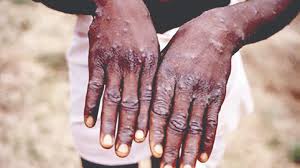Latest News
Top Story
 How one woman changed Chiwenga's image without even trying
How one woman changed Chiwenga's image without even trying IN Zimbabwe's fierce political arena, where reputations are shaped by coups, crackdowns, and corruption scandals, Vice-P...
Top Story
 South African ambassador falls to death from Paris hotel room
South African ambassador falls to death from Paris hotel room South Africa's ambassador to France has been found dead after falling from the 22nd floor of his hotel.Emmanuel Nkosina...
Top Story
 India dumps US Treasury bills
India dumps US Treasury bills India has reduced its holdings of US Treasury bills over the past year, reflecting a more cautious approach in its centr...
Top Story
 ZSE and VFEX recover after weak 1st half
ZSE and VFEX recover after weak 1st half Zimbabwe's equity markets had a subdued first half of 2025, with the Zimbabwe Stock Exchange (ZSE) shedding 3% in real ...
Top Story
 Gold edges up as traders await guidance
Gold edges up as traders await guidance Gold edged higher as traders weighed the outlook for US monetary policy ahead of a key speech by Federal Reserve Chair J...
Top Story
 Unifreight reports 231% revenue growth
Unifreight reports 231% revenue growth Unifreight Africa has reported a strong financial performance for the half-year ended 30 June 2025, driven by expanding...
Top Story
 Young Investment Professional (YIP) Graduate Programme 2019
Young Investment Professional (YIP) Graduate Programme 2019 Company Name Investec Asset Management Company Location Cape Town, Western Cape, South Africa Click HEREJob descriptionO...








.png)



 Young Investment Professional (YIP) Graduate Programme 2019
Young Investment Professional (YIP) Graduate Programme 2019
Editor's Pick